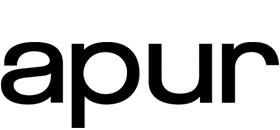Patricia Pelloux, deputy director of the Parisian urban planning workshop, will speak on March 15 between 2:30 p.m. and 5 p.m., during the round table: “Inventing Greater Paris: production of knowledge and citizen skills”.

The political moment initiated by the International Consultation of Greater Paris in 2008 constituted an exceptional opportunity to relaunch work on the history of the Ile-de-France metropolis. Historians and researchers could only question the disruptive discourses disseminated by decision-makers, planners and the media. It is in this spirit that in 2012 the multidisciplinary research collective “Inventing Greater Paris” was formed which, through four international conferences (2013, 2014, 2015, 2016), extended by a research program of 8 years within the Labex Urban Futures, endeavored to reinscribe this episode in a long genealogy of plans, projects, operations, which have defined metropolitan futures.
The word “invent”, taken in its double etymology of inventory and invention, has thus allowed several renewals. The first consisted of going beyond an older historiography which had made the succession of major development plans the main framework of a narrative of the metropolis (Michel Carmona, 1979). The second was to resolutely reinscribe the Parisian case in an international comparative approach by highlighting the circulation of knowledge and experts, and by questioning possible “moments” around which common issues arise within a intersecting history of metropolises. . The third, finally, consisted of enriching the history of the metropolitan fact with other questions, such as that of political scenes, landscapes and representations, or even the long term.
So why add the term “invert” here? Beyond the games of consonance, it is a question of starting as much from the inflections of a research program as from the renewal of historiography and the themes raised by current events. On the one hand, the work of the collective has led to a shift in attention towards plural approaches to Greater Paris. The single object of study, or placed in a comparative perspective, gives way to a multiplicity of fields, brought together here by the research questions posed to them. On the other hand, the rise in power, in political and media discourses, but also in university disciplines, of environmental concerns, of heritage awareness, of interest in users or actors whose role has been played down until now, or for situated history, constitute so many invitations to decenter the gaze in order to grasp the metropolitan fact. The word “reverse” therefore explores here the potential for renewal of research in the double sense of “reversal of perspective” and “change of order and value”, by favoring three questions that this conference aims to deepen:
- A plural reading of the metropolitan fact. From Greater Paris to Greater Paris
- Metropolitan temporalities. From scansion in plans to crossed temporalities
- From international comparativism to a narrative of the metropolitan fact
